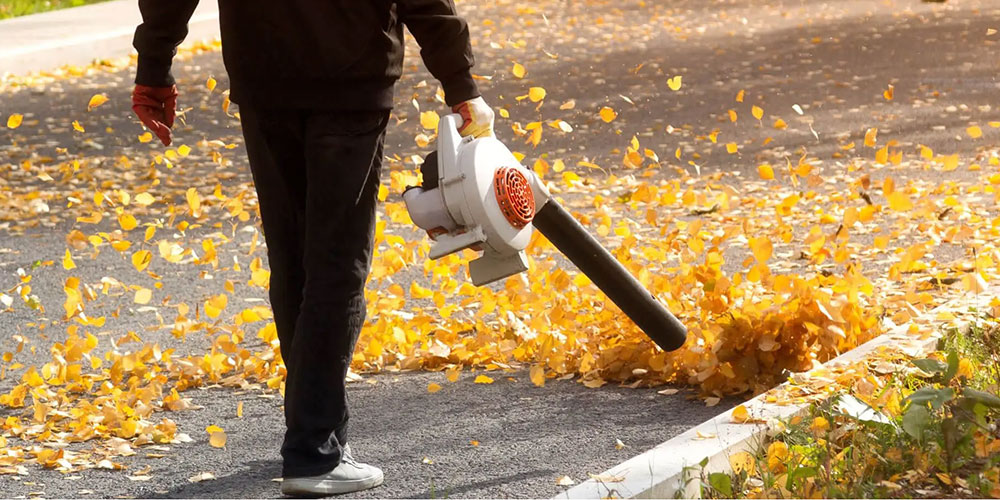
08 Jun June’s Action: Power Up with Electric Gardening Tools
Greetings, green-thumbed enthusiasts!
As climate change concerns continue to grow, gardeners are seeking eco-friendly alternatives to maintain their lush landscapes. Switching from gas-powered yard equipment to electric-powered rechargeable ones can benefit both you and the environment. Let’s explore how electrifying your garden can contribute to a more sustainable future.
Gardens have long been sanctuaries of nature, but traditional gas-powered tools emit harmful pollutants and contribute to carbon emissions. Garden equipment engines produce up to 5% of the nation’s air pollution. In fact, US Environmental Protection Agency (EPA) studies show that one hour operating a new gasoline lawn mower emits the same amount of volatile organic compounds and nitrogen oxide driving a car 100 miles.
By electrifying garden tools, we can significantly reduce our environmental footprint. Electric alternatives offer quieter operation, zero emissions, and lower maintenance requirements, making them ideal for eco-conscious gardeners.
Powering Up with Electric Tools Reduces Emissions
Gas-powered equipment contributes to air pollution, especially for small engines that lack catalytic converters. Gas-powered lawn tools generate a surprising carbon footprint.
Electric mowers and leaf blowers are zero-emission, which can significantly improve air quality, especially in urban areas.
From lawnmowers to trimmers, chainsaws to leaf blowers, there’s an electric solution for every gardening task. Electric lawnmowers, for example, not only trim grass with precision but also eliminate the need for gasoline and oil, reducing air and noise pollution. Similarly, electric trimmers and chainsaws provide the power needed to maintain hedges and trees without the fumes and noise associated with their gas-powered counterparts.
While electric equipment may not be ideal for everyone, especially those with very large yards, they are a great option for most homeowners. They are becoming increasingly powerful and have longer battery life spans, making them a viable alternative to gas-powered equipment.
Silent Partners: Battery-Powered Innovation Means Quieter Operation and Less Noise
Gas-powered equipment can be very loud, disturbing you and your neighbors. Electric mowers and leaf blowers are significantly quieter, making yard work more pleasant for everyone.
One of the key innovations driving the electrification of garden tools is the advancement of rechargeable batteries. Lithium-ion batteries have revolutionized the industry, offering longer run times, faster charging, and greater power output. With interchangeable batteries becoming more commonplace, gardeners can seamlessly transition between tools without interruption, maximizing efficiency and minimizing waste.
More Convenient, Easier Maintenance and Lower Running Costs
No more struggling to pull-start a stubborn engine. Electric equipment starts easily with the push of a button and offers features for comfort and ease such as interchangeable tools. Electric equipment typically requires less maintenance than gas-powered equipment. You won’t need to deal with gas mixing, spark plugs, or oil changes. Electricity is generally cheaper than gasoline, so you’ll save money on fuel in the long run.
Understand the Options and Make a Plan.
Before switching to electric equipment take the time to understand the options. Your local hardware store or home improvement retailer can be a great source of information. Consider ease of use, interchangeable tool and battery options. Family Handyman Tips for Switching to Electric Lawn Care
Next, make a wish list of tools and look for opportunities to replace your existing faulty or old equipment with electric. Don’t forget to find out how to sell, donate or dispose of gas-powered equipment safely in your community.
Embrace Sustainable Practices
Electrifying garden tools is just one step towards creating a more sustainable outdoor space. Implementing water-saving techniques, utilizing organic fertilizers, and planting native species are all ways to enhance the environmental impact of your garden. By adopting these practices, gardeners can create vibrant landscapes that benefit both people and the planet.
Join the Movement: Be an Advocate for Change
As stewards of the land, gardeners play a crucial role in advocating for environmental responsibility. Start a conversation with your landscaper or town officials. By sharing knowledge, participating in community initiatives, and supporting companies that prioritize sustainability, gardeners can inspire others to embrace eco-friendly practices. Together, we can cultivate a greener future for generations to come.


